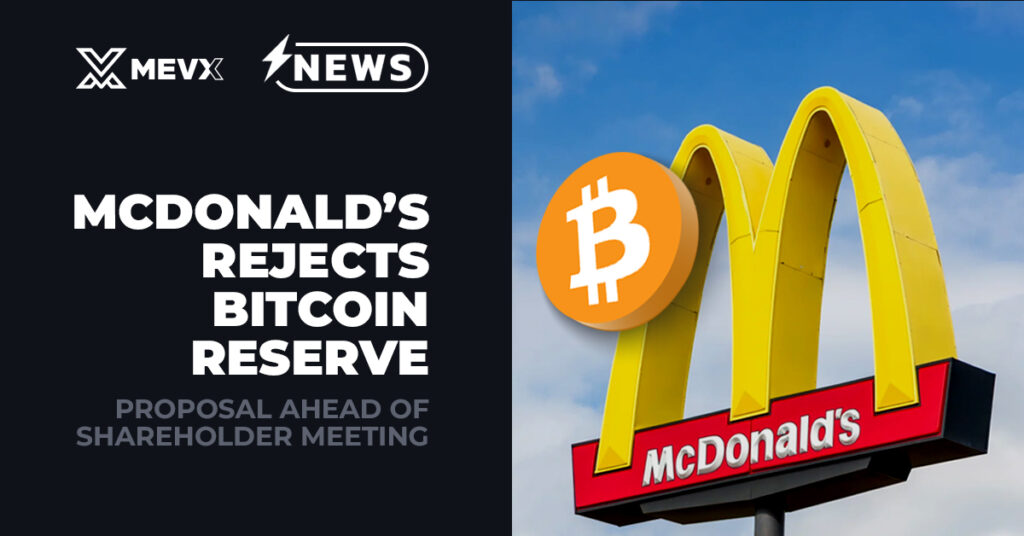Adopting Bitcoin seems to be a trend for large corporations.

Next month’s shareholders’ meeting by McDonald’s is being prepared, but a proposal by conservative think tank National Center for Public Policy Research to consider adding Bitcoin as a reserve asset faces trouble. They think that there is greater growth potential in Bitcoin compared to real estate, which is traditionally a less volatile asset class than bonds or cash. They referenced an oft-repeated statement by former McDonald’s President and Chief Financial Officer Harry Sonneborn, pointing to the need to consider such an asset with greater potential for growth, warning that McDonald’s will fall behind with increasingly more companies adding Bitcoin to their balance sheets.
Despite the expansive scope of the proposal, neither of McDonald’s management showed support for the proposal. McDonald’s legal department made a request with the U.S. Securities and Exchange Commission (SEC) to omit the proposal from shareholders’ meeting agendas without seeking any action for enforcement. SEC replied last month that it was upholding McDonald’s ability to omit the proposal since it constitutes usual business issues not necessitating shareholders’ vote. The decision effectively ensures that there will be no discussion of the Bitcoin proposal at the forthcoming meeting, signaling McDonald’s opposition to using cryptocurrency as a reserve.
The think tank’s action falls under a wider development of corporations putting Bitcoin on their lists of treasury holdings because of their high returns. Yet, the cryptocurrency market remains divisive. During Microsoft’s annual meeting last year, for example, an identical suggestion that the company should put 1% of its holdings in Bitcoin was voted down by the board of directors, which is a conservative approach that most mainstream organizations are adopting. McDonald’s action follows such wariness by opting for stability over the uncertainty that accompanies digital holdings.
Market perspective puts things in perspective. Currently trading around $80,000, volatile Bitcoin made early adopter-friendly enterprises such as MicroStrategy profitable, with some still reluctant to take a chance. With mainstream popularity achieved by cryptocurrencies, mainstream application in corporate financial planning invites contentious scrutiny. McDonald’s denial of calls for Bitcoin, which was validated by the SEC ruling, offers precedent for similar pressures being felt by other corporations, indicating just how hard it can be to incorporate digital currencies into traditional business. Its resolution can have knock-on effects on the way that other corporations treat financial and cryptocurrency overlap in the future.
Share on Social Media:
